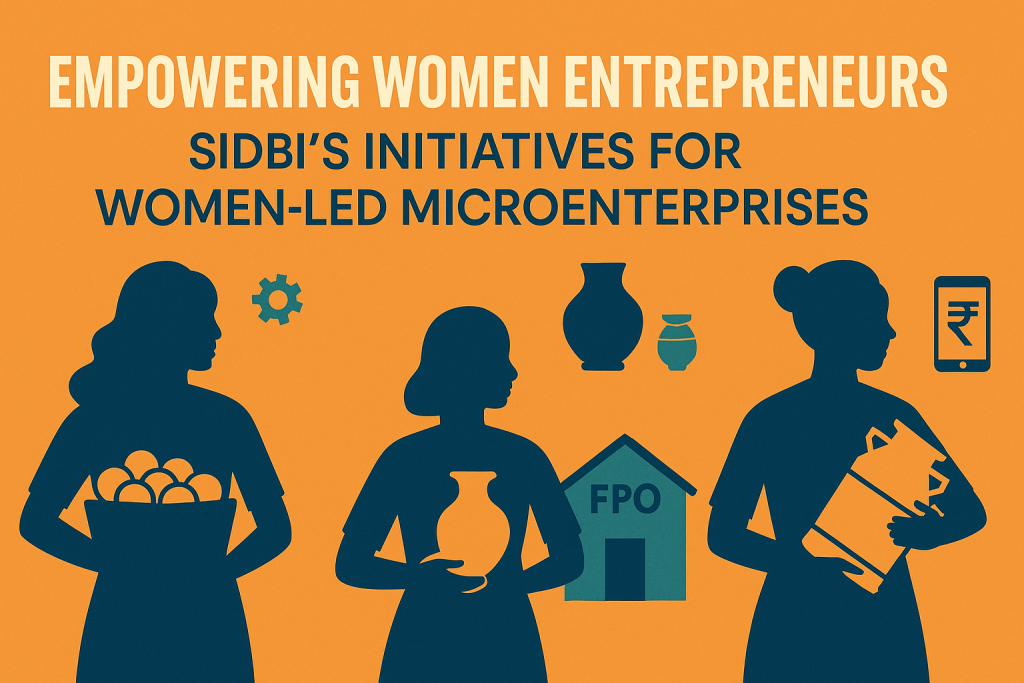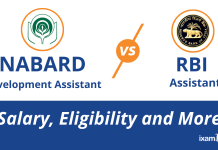India’s micro, small and medium enterprises (MSMEs) sector owes much of its dynamism to the countless women entrepreneurs who run home‑based ventures, Kirana shops, artisan co‑ops and service outfits. Yet data shows that women‑led microenterprises often struggle with limited access to affordable credit, lack of market linkages and minimal business training. Recognising this gap, the Small Industries Development Bank of India (SIDBI) has rolled out a suite of SIDBI schemes for women entrepreneurship designed to unlock finance, build skills and create lasting support networks. Let’s explore how SIDBI is championing women‑led microenterprises and why its interventions matter now more than ever.

Why Focus on Women‑Led Microenterprises?
Women entrepreneurs drive local economies, boost household incomes and often reinvest profits in health, education and community welfare. Yet the gender financing gap in MSMEs remains stark: banks frequently request collateral that small women‑owned units cannot furnish, and many women lack formal credit histories. By targeting support for women microentrepreneurs, SIDBI not only promotes financial inclusion but also helps meet India’s broader goals of economic growth and social equity.
Challenges Faced by Women Entrepreneurs
- Collateral constraints: Traditional lenders demand land or property as security, which few women micro‑business owners possess in their names.
- Limited business networks: Without mentorship or peer groups, many women miss out on market insights, bulk‑buying advantages and digital marketing know‑how.
- Low financial literacy: Understanding loan terms, interest rates and repayment schedules is vital—but often missing in first‑time entrepreneurs.
- Balancing social roles: Juggling household responsibilities with enterprise expansion means many women struggle to plan for long‑term growth.
SIDBI’s Women‑Centric Programmes
SIDBI has devised multiple women entrepreneur financing solutions that directly address these barriers:
- Saksham Women’s Entrepreneurship Platform: A national digital portal that aggregates capacity‑building modules, market‑linkage opportunities and networking events. It offers e‑learning courses on book‑keeping, pricing strategies and digital payments, all free for registered women microentrepreneurs.
- WE Hub Collaborations: Through partnerships with state‑level Women Entrepreneurship Hubs (WE Hubs), SIDBI organises regional boot‑camps and mentorship clinics where experienced women CEOs share growth hacks, from securing government tenders to scaling up handloom clusters.
- Mahila Coir Yojana: Specially designed for coir co‑operatives (coconut fibre units) predominantly run by women in coastal Andhra Pradesh and Tamil Nadu, this scheme offers low‑interest credit lines and grants for machinery like spinning equipment and solar dryers.
- SIDBI Credit Guarantee: When collateral is lacking, the SIDBI credit guarantee kicks in—covering up to 75% of the loan value for women entrepreneurs under its Micro Credit Accelerator Programme. This reduces lenders’ risk and makes banks more willing to extend working‑capital and term loans.
Success Snapshots: Real Impact on the Ground
- In Maharashtra’s rural belt, over 1,200 women dairy‑farm entrepreneurs accessed SIDBI’s Micro Credit Accelerator to buy bulk chilling units. As a result, milk yield losses dropped by 20% and household incomes rose by ₹5,000–₹7,000 per month.
- A cluster of women potters in Rajasthan tapped into the Saksham platform for branding and e‑commerce training. Within six months, their joint online store saw a 40% surge in pan‑India orders and orders doubled around festival seasons.
- Under the Mahila Coir Yojana, a co‑operative of 300 women in Kerala installed solar‑powered fibre processing machines. The co‑op’s annual turnover jumped from ₹30 lakh to ₹55 lakh, with profits reinvested into community health initiatives.
Building a Lasting Ecosystem
SIDBI’s approach goes beyond one‑off loans. Its holistic support model combines:
- Capacity building through workshops and digital modules,
- Credit facilitation via guarantee schemes and special refinance windows,
- Market linkages by partnering with e‑marketplaces and government procurement portals, and
- Policy advocacy to streamline regulatory processes for women MSMEs.
By fostering peer networks and public‑private partnerships, SIDBI ensures women entrepreneurs are never alone in their growth journey.
Your Next Steps as a Women Entrepreneur
- Register on Saksham: Browse tailored courses on digital payments, costing and marketing.
- Approach SIDBI‑linked banks: Ask about SIDBI credit guarantee support for loans without collateral.
- Join a WE Hub boot‑camp: Learn from successful women founders and build a mentor circle.
- Leverage e‑commerce platforms: Use your Saksham‑gained skills to sell wider and better.
Conclusion
Women‑led microenterprises are poised to become an unstoppable force in India’s economic revival—but only if they overcome finance and knowledge barriers. Through its women‑focused initiatives, SIDBI is lighting the path: from enabling unsecured credit to offering digital training and market access. If you’re a budding or established woman entrepreneur, now is the time to tap into these SIDBI schemes, sharpen your skills and amplify your impact—because when women succeed, communities flourish.
ixamBee specializes in providing expert guidance and resources for banking exams 2025, ensuring that you are well-prepared for the Upcoming Bank Exams like RBI Grade B, NABARD Grade B, IBPS SO, and more. Our courses align with the bank exam calendar 2025, covering all the essential topics. With a focus on the upcoming bank jobs, our Previous Year Papers, BeePedia, SSC CGL, SSC CHSL, SSC MTS and other Mock Tests are designed to help you excel in upcoming banking exams.















